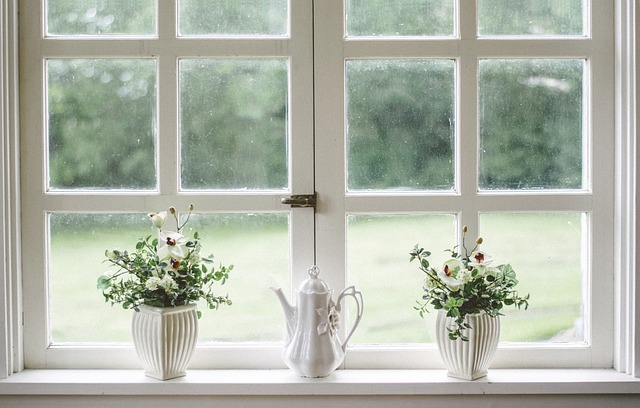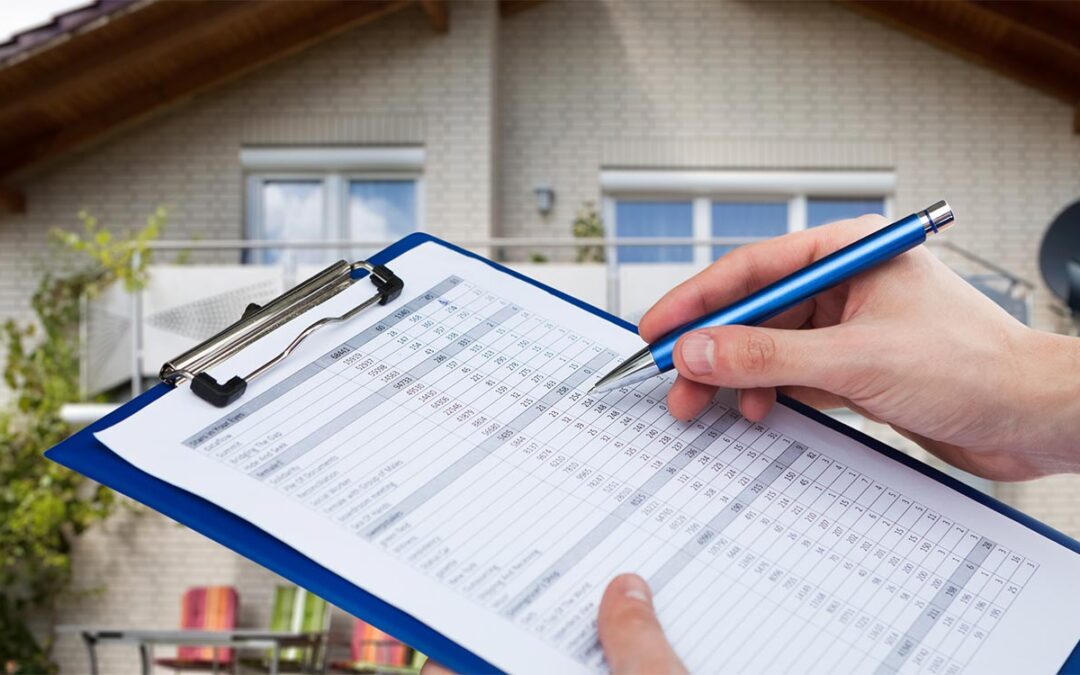Picture this: you’re buying a home. You found the one, your offer was accepted, and now you’re in the thick of attorney review part of the home buying process, which means it’s time for the home inspection.
The real estate inspection is a critical and sometimes anxiety-inducing time for home buyers and sellers alike. What if the report comes back and the house has issues? What does that mean for the deal, and for my wallet?
Our team of experienced real estate agents have been through more home inspections than we can count, so we thought we’d give our two cents on what really goes on during a home inspection and what you should expect from the process. Let’s dive in, shall we?
What’s the point of a home inspection?
Here in Illinois, we’re lucky to have a few contingencies for buyers during the home buying process. A contingency is “a clause in a purchase agreement specifying an action or requirement that must be met for the contract to become legally binding. Both the home buyer and seller must agree to the terms of each contingency and sign the contract before it becomes binding.” Aka, it’s a safe guard so if you find something you don’t like during the process, you can back out of the sale.
One of those main contingencies as a home inspection contingency — the right to perform a home inspection on a property that you’re purchasing. The way this happens is that we’ll have a professional home inspection to come out and take a look at the physical structure and current condition of the property from top to bottom — literally, from the roof to the foundation.

The purpose of this inspection is to give you a detailed overview of the condition of the property and deeper understanding of what you’re signing yourself up for. The home inspector will be looking at all your major mechanicals; your appliances, windows, floors, doors, and ceiling. They’ll check for any water intrusion and a whole laundry list of other potential issues that can happen with a house.
How long does a home inspection take?
The length of time that a home inspection takes depends on the size and property type of the home that you’re purchasing.
So usually, smaller condos will take anywhere from an hour and a half to two hours. And then larger single family homes can take upwards of three and a half to four hours, maybe even more if it’s a mansion.
How much do home inspections cost?
Regarding cost, if you’re looking at a smaller condo, the average home inspection will likely cost around $300. If you’re purchasing a larger single family home, the inspection cost could be upwards of a thousand dollars. The reason for that is that there are a few different specialty inspections you’ll need on top of the standard inspection, but we’ll get to that later.
What exactly are they looking for?

Your basic inspection will involve the home inspector looking at five main things: windows, plumbing, mechanicals, electrical, and appliances. The inspector’s going to make sure that not only are these things in working order, but in general, you understand the condition of the home — are there minor issues or major problems?
Here’s the main thing to note: we don’t care if the home is a hundred years old or brand new — there’s going to be something, we’re going to uncover it, and we’ll be able to address it to the seller when that time comes. Never, ever expect a clean inspection, but it’s also important that we understand what our deal breakers are if they come up.
Windows
The first thing is windows. What are they actually going to be looking for? The entire point of the inspection is to make sure things are operating properly — do the windows open? Are they tracking right? Are the latches working? Are they locking properly?
Electrical
With the electrical system, they’re making sure things are wired properly. The biggest one I see of G F C I electrical outlets, which are normally around water sources, like around sinks. If something were to touch the water that was plugged in, it would actually shut off the circuit breaker, so we’re making sure those are in working conditions.
Plumbing

When it comes to plumbing, we’re making sure that there are no active leaks and if there were leaks in the past, they were addressed.
Mechanicals and Appliances
The last two things are mechanicals and appliances. Everything that’s being checked is going to have some life expectancy, so depending on the make and model, the year and how it’s taken care of, it’s either going to extend that life or decrease some of its functionality.
What are specialty inspections, and do I really need them?
The first specialty inspection that we’re going to get is a radon test. Radon is a colorless and odorless gas that can actually be detrimental to your health if there’s a high amount. For radon testing, your inspector is going to place a meter in the basement of the home and to leave it there. Usually, within 48 hours, we can get a good reading of the levels of radon in the home, and then we’ll get the results back shortly after that. The test will usually cost anywhere from $150 to $200.
There are add-ons you can get to the inspection, one being a sewer scope. A sewer scope is probably necessary if you’re buying a single family home or townhome because you’re responsible for the sewer and roof inspection. With a condo, the HOA is likely more responsible for the condition of the exterior.
Do I have to be present during the inspection?
A lot of our clients will ask if they have to come to the inspection. Carving out three hours to go sit in the house can be tough for some people, so the answer is that you don’t necessarily have to go.
Your agent will always be there to make sure everything goes smoothly, but you can come for the last 30 minutes if you want, and we can have the inspector give you a brief overview of everything that he found so you don’t have to watch him test all the light switches, for example.
However, the few hours that we have for the home inspection can be a really great time for you to spend some quality time in the home that you’re purchasing. You can poke around and take another look at any measurements or photos that you might need.
Also, your inspectors should be showing you some things around the house, so they’ll be able to tell you where your main water shutoff is, where your gas lines are, if you ever need access to them, and also how to change your HVAC filter and other things like that.
What will the report be like?

Once the home inspection is concluded, we can usually expect a home inspection report either later that day or the next day. This can be a nerve-wracking time for a home buyer. You’re going to get a written report that is at least 40 pages long which includes the inspector telling you every little thing that isn’t fully up to code or might be somewhat off about the property, and seeing it all in one report can be overwhelming.
It’s important to note that usually anywhere from 80% to 90% of the items on this home inspection report are going to be things that you would’ve probably never noticed. I promise you that if you were to get a home inspection of wherever you’re living now, you’d probably come up with that same 40 page report, and there’d be things on there that you would never think to complain about.
The Report Analysis
One thing we do for all of our clients is an analysis of this report. We’ll go through that 40 to 60 page document and pull out all the things that I think are red flags or big ticket items that we should have addressed by the seller.
As always, this will be my advice: at the end of the day, you’re the one that’s in control, so if there are things that you want addressed that I might not have picked out of that report, we can always have a conversation and figure out a solution for those issues as well.
Issue Categories
There are two main categories of things that can come up in a report. One is handyman items, which are small things that can probably be fixed over a weekend watching YouTube. The next category is licensed professional items, or things that you probably shouldn’t be tackling yourself and things you might want to be done before you move in.
For each person, what falls in these buckets can be entirely different depending on how comfortable you are doing work yourself.
Whichever way you categorize the items in the report, the main takeaway is that we want to make sure that you feel comfortable with the condition of the home. There’ll be credits, there’ll be repairs, there’ll be things that we might get stuck on in this part of the inspection. But all in all, I’m on your team and I’m here to make sure that you feel comfortable with this purchase.
What happens after we get the report?
Once we have a finalized list of inspection items, we’re going to make a request to the seller. Usually what we’ll do is either ask for repairs or monetary credits. We’ll go back and forth with them to make sure all of your concerns are taken care of the greatest extent possible, and then we’re done.
The home inspection process is a big moment throughout the transaction. Depending what we find on that report, it can be make or break for your purchase, so sometimes anxiety can arise. But you can rest assured that my goal as your agent is to always look out for your mental health and to work with your best interest in mind.
Have more questions about the entire closing process before and after the inspection? Click here to read more!


